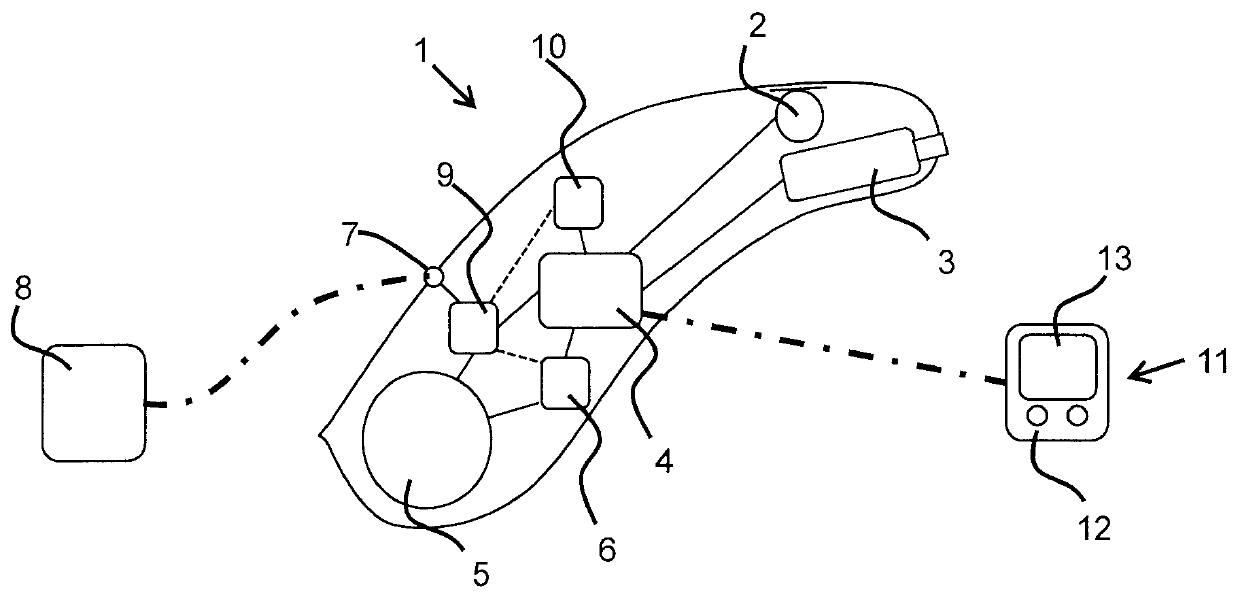Method for charging a battery of a hearing aid and a hearing aid with a battery charging unit
a technology for hearing aids and charging units, which is applied in the direction of electric vehicles, circuit monitoring/indication, transportation and packaging, etc., can solve the problems of frequent replacement, difficult handling of such tiny batteries, and time-consuming, so as to prevent excessive use of fast charging
- Summary
- Abstract
- Description
- Claims
- Application Information
AI Technical Summary
Benefits of technology
Problems solved by technology
Method used
Image
Examples
Embodiment Construction
[0058]A hearing aid 1 according to the present invention is illustrated schematically in FIG. 1. It comprises a microphone 2 for picking up sound from the surroundings of a user wearing the hearing aid 1 at an ear or at least partly within an ear canal, a processing unit 4 for processing, e.g. amplifying, the audio signal from the microphone 2, and a miniature loudspeaker 3 (often also referred to as a receiver) for outputting the processed audio signal into the ear canal of the user. The hearing aid 1 is powered by a rechargeable battery 5 such as for instance a lithium ion button cell. Because the hearing aid 1 is typically used for a prolonged period of time, e.g. throughout the day, the battery needs to be recharged overnight. Extensive use of the hearing aid 1, e.g. when a high degree of amplification or a large amount of processing is required, for instance due to frequent changes of listening environments or due to the use of power-intensive features such as beamforming, feed...
PUM
 Login to View More
Login to View More Abstract
Description
Claims
Application Information
 Login to View More
Login to View More - R&D
- Intellectual Property
- Life Sciences
- Materials
- Tech Scout
- Unparalleled Data Quality
- Higher Quality Content
- 60% Fewer Hallucinations
Browse by: Latest US Patents, China's latest patents, Technical Efficacy Thesaurus, Application Domain, Technology Topic, Popular Technical Reports.
© 2025 PatSnap. All rights reserved.Legal|Privacy policy|Modern Slavery Act Transparency Statement|Sitemap|About US| Contact US: help@patsnap.com

